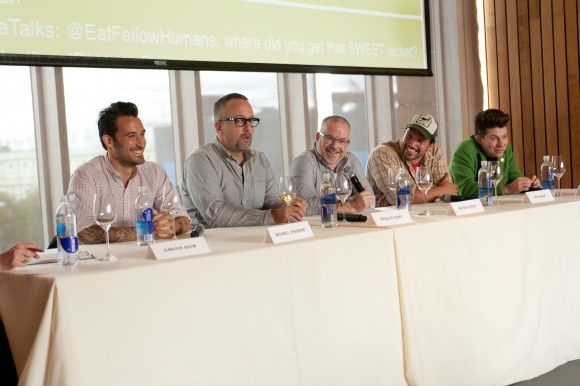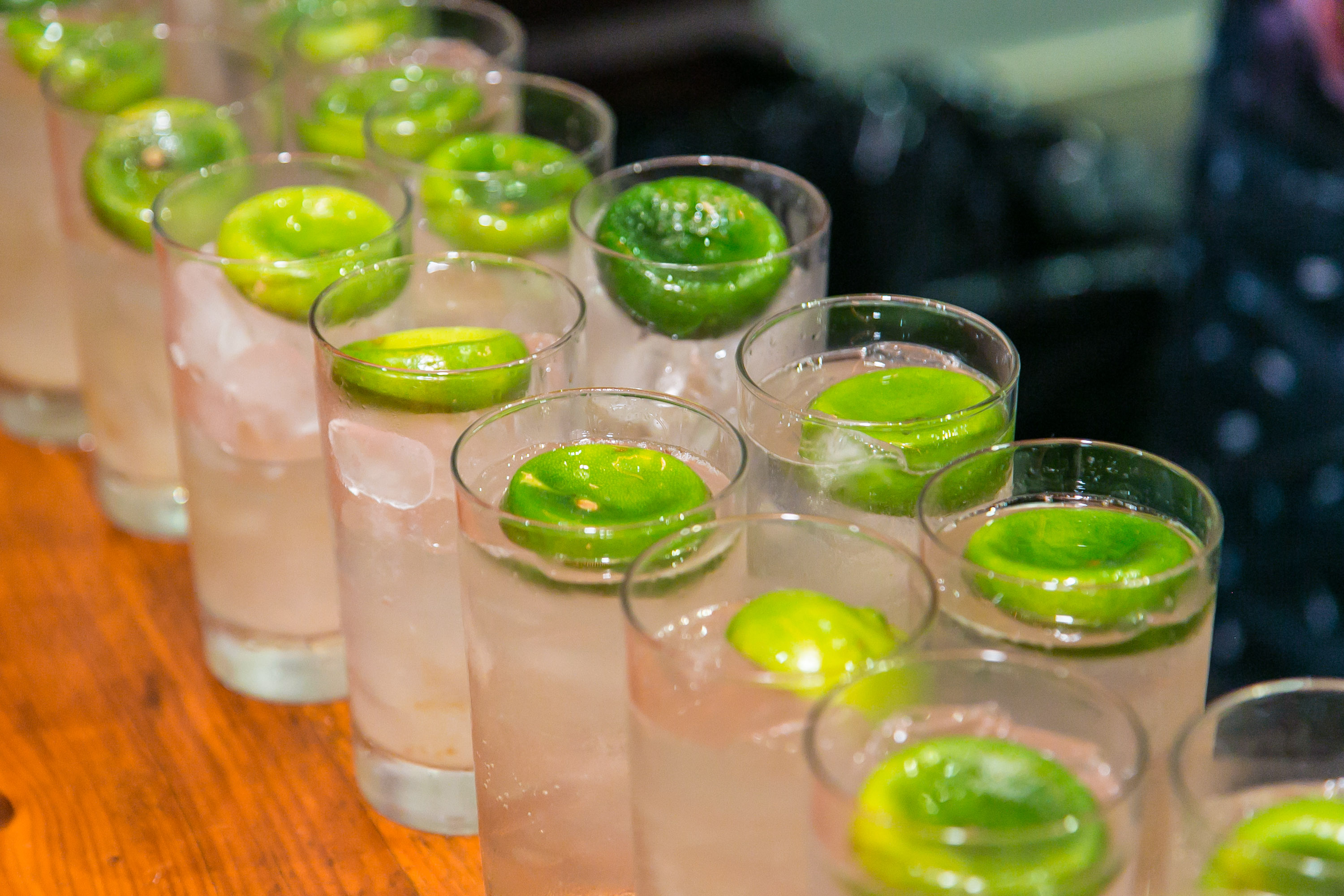The truth about overnight success revealed
By Kristen Oliveri
Photo courtesy of Bullfrog and Baum/Solomon Oh
While publicity and success can take many forms, massive media and television attention can change the course of a restaurateurs’ professional path.
Many in the restaurant industry spend years toiling inside their kitchens and pouring over books to pay off endless bills, without ever even entertaining a thought that fame may come knocking on their door. Some within the food and beverage industry, quite frankly, don’t want such attention as their main goal is always to keep their restaurant, bar or hospitality hub in the center spotlight.
Others, who have grown up or are living in the world of food television and a food-centric culture, have experienced immense success in what feels, and looks, like overnight.
At From Zero to Sixty one of the featured seminars for Trade Talks 2012, a program conceived of and hosted by hospitality PR firm Bullfrog & Baum (www.bullfrogandbaum.com) in conjunction with the New York City Wine & Food Festival (www.nycwineandfoodfestival.com), Michael Chernow of the Meatball Shop (www.themeatballshop.com), Ben Sargent, host of Cooking Channel’s Hook, Line and Dinner (www.cookingchanneltv.com/hook-line-dinner), Douglas Quint and Bryan Petroff of the Big Gay Ice Cream Truck (www.biggayicecream.com) and Justin Warner of Do or Dine (www.facebook.com/DOorDINE) and the winner of The Next Food Network Star, spoke candidly about how they’ve handled the spotlight.
Warner, perhaps the most candid of the bunch, was originally working as front of house staff in restaurants throughout New York City when he decided to open NY’s Bed-Stuy-based restaurant Do or Dine with friends, and without any formal culinary training. While he has always been a bit of a trendsetter, his relationship with the media from the beginning was quite unconventional. He recounted the story of how he reached out to a food editor of the New York Times to let them know of his restaurant’s opening with a simple Tweet reading: “Yo, we open.” He notes, “The next thing I knew Florence Fabricant was reviewing it.”
Reviews for Sargent’s endeavors had some celebrity buzz attached to it when he became a food icon in 2010 after launching the Underground Lobster Pound, a covert operation based out of his Brooklyn apartment where he served his famous lobster rolls. As he says, “I knew I was doing something special when Sarah Jessica Parker showed up at my apartment for a lobster roll.” He believes that through his show he has created a great platform where he can share stories of true fisherman who love their craft and may even sacrifice a tremendous amount for it. “I want to be able to tell heartfelt stories about a guy who lost his brother fishing,” says Sargent.
Recognition for how Petroff approaches his craft has been honed through a journey that was shaped by what he describes as the most important things – learning how to say ‘no’ and becoming choosy when offers were being thrown their way. “We said ‘no’ more than anything else. There were franchising opportunities that we weren’t sure we should take because we didn’t know what we were doing, but we still said no,” explains Petroff, adding that when better opportunities came along, the duo was prepared to take the next step and recognize the value in it.
Chernow valued his friendship and the cooking expertise of longtime friend and classically trained chef, Daniel Holzman, and so they partnered to open the Lower East Side’s wildly popular, The Meatball Shop. Originally designed to be a restaurant for counter service, he and his partner quickly realized with the growing demand, they should have redesigned the space to seat more tables.
While the restaurant has now taken off and Chernow has been at the center of media attention, most notably a cover-spread in a JCrew calendar, the partners are focusing their efforts on giving their customers what they want. “It’s not always about where the bus is going; focus on who’s on the bus and how to fill it with great people, the rest will all take shape. Great people are the key to success in our industry, with great people come great empires,” says Chernow.
For Warner, his dreams never really incorporated television, but rather, he wants to have a long-standing career as a restaurateur. “Once I was on the show [The Next Food Network Star], I figured I might as well win,” says Warner.
While many appreciate the attention and success they’ve had in a relatively short period of time, the panelists agreed, the heart and soul of what they do is always about the food and the quality of the products they produce.


